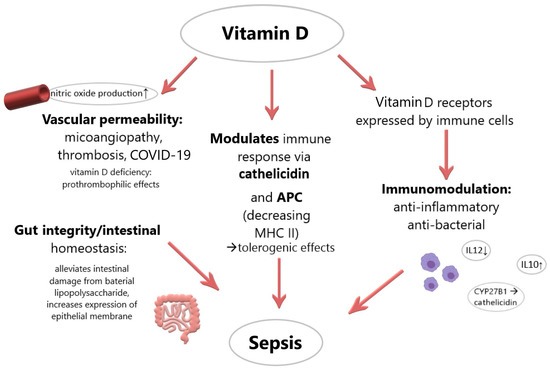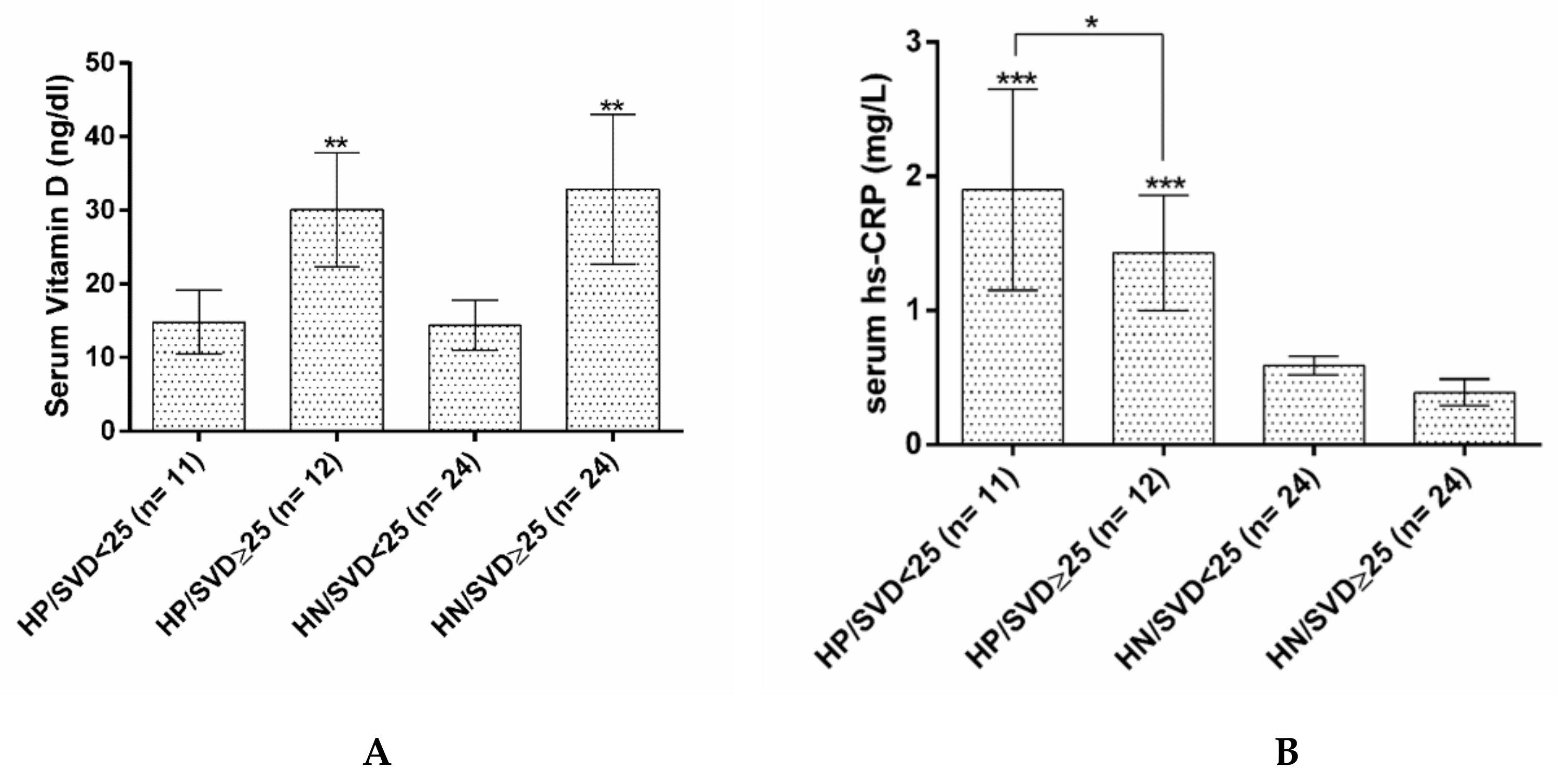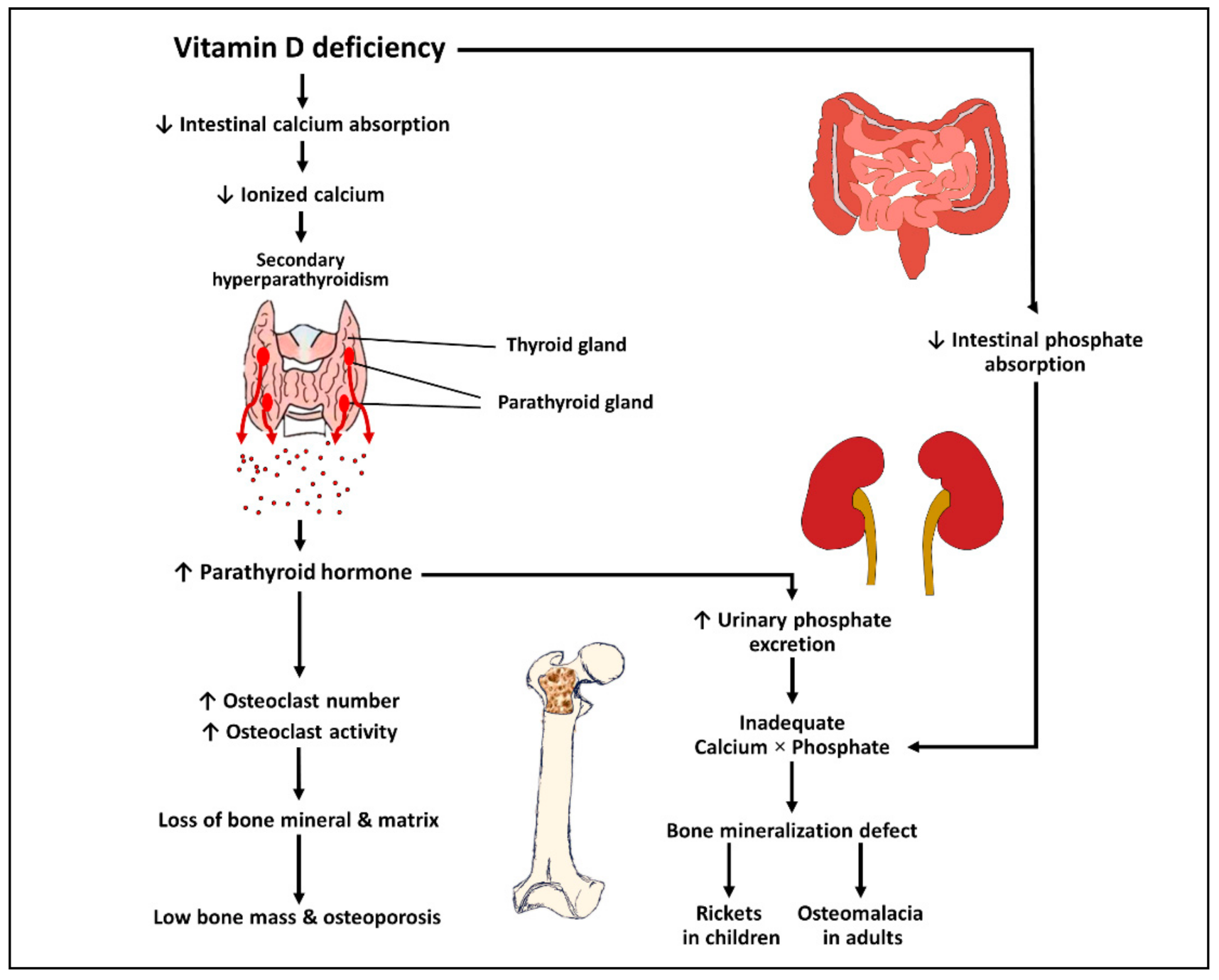Vitamin D Deficiency And Cardiovascular Disease The Missing Link
The focus of this article is to explore the role of vitamin D deficiency in relation to cardiovascular disease. January 8 2008.

Suggested Mechanisms Of Vitamin D And Vitamin D Deficiency Vdd Impact Download Scientific Diagram
Vitamin D helps the body absorb calcium.
Vitamin d deficiency and cardiovascular disease the missing link. The study published in the European Heart Journal says that there is evidence that vitamin D deficiency can increase blood pressure and therefore the risk of cardiovascular disease. Vitamin D deficiency is highly prevalent worldwide and has been implicated in the pathogenesis and complications of cardiovascular disease CVD. Incidental type 2 diabetes mellitus is more prevalent among people.
Thus menopause and vitamin D deficiency share several common adverse effects including bone loss mood disturbances increased risk of heart disease and cancer2. Vitamin D deficiency is associated with incident cardiovascular disease. Several large observational studies have linked vitamin D deficiency.
The high worldwide prevalence of vitamin D deficiency is largely the result of low sunlight exposure with subsequently limited cutaneous vitamin D production. Lower Risk of Excess Mortality. Read the article further to know.
Further clinical and experimental studies may be warranted to determine whether correction of vitamin D deficiency could contribute to the prevention of cardiovascular disease. Vitamin D status has been linked to the risk of cardiovascular disease CVD. Vitamin D deficiency is widespread the lowest vitamin D levels are commonly found in regions such as the Middle East and South Asia and the main risk factors were attributed to elderly women higher latitude winter season less sunlight exposure skin pigmentation dietary intake and low vitamin D fortified foods It was estimated that the.
Several trials are done to know the connection between vitamin D deficiency and CVD but there is not yet any clear conclusive evidence. The biologically active form of vitamin D is 125 dihydroxyvitamin D but the best indicator of vitamin D status in individuals free of kidney disease is 25- hydroxyvitamin D the substrate for the renal and nonrenal production of calcitriol with a longer biological half-life and a higher concentration than 125 dihydroxyvitamin D reflecting. The levels of serum vitamin D appear to influence cardiovascular risk and the mechanism involved is linked to the transient outward current and the ultrarapid delayed rectifier K current densities.
In a new study researchers have established that it is worthwhile to check vitamin D levels when assessing a persons cardiovascular risk. Vitamin D deficiency is a prevalent condition occurring in about 30-50 of the population observed across all ethnicities and among all age groups. This overview examines the potential role of hypovitaminosis D as a contributor to racial and ethnic disparities in cardiovascular disease CVD.
Low vitamin D levels favor atherosclerosis enabling vascular inflammation endothelial dysfunction formation of foam cells and proliferation of. However the optimal 25-hydroxy-vitamin D 25OH-vitamin D. Vitamin D is.
More recent evidence suggests that vitamin D may also play a protective role in many chronic conditions including cancer autoimmune kidney and cardiovascular diseases CVDs. Cancer 9 and cardiovascular disease. We review the epidemiology of vitamin D and CVD in African Americans and the emerging biological roles of vitamin D in key CVD signaling pathways that may contribute to the epidemiological findings.
Methods and Results We studied 1739 Framingham Offspring Study participants mean age 59 years. However a clear mechanistic link remains missing. It found no association between vitamin D supplementation and reduced risk of cardiovascular disease or cancer.
A growing number of studies support that low level of vitamin D increased the chances of heart diseases and that addition of vitamin D supplements can decrease the risk. Individuals with normal vitamin D levels had nearly half the risk of heart attacks compared to those with low vitamin D levels according to a big medical trial. Which improves bone.
Observational studies have associated low vitamin D levels with CVD risk factors including hypertension. In addition the effect of vitamin D on some other pathologies that are associated with menopause. Definition of Vitamin D Deficiency.
2 In addition manifestations of CVD are more common during the winter season when vitamin D levels are at their lowest. Defining this relationship has been challenging and the clinical application of vitamin D screening and supplementation for CVD risk prevention and modification remain uncertain. Classic manifestations of vitamin D deficiency are linked to disturbances in bone and mineral metabolism but the identification of the vitamin D receptor in almost every human cell.
The same vitamin D deficiency that can result in weak bones now has been associated with an increased risk of cardiovascular disease. Estimates of vitamin D deficiency in the UK suggest it may affect approximately 6187 of adults depending on the season 10. Besides the established role of vitamin D in calcium homeostasis its deficiency is emerging as a new risk factor for cardiovascular disease CVD.
All white without prior cardiovascular disease. Vitamin D is widely known for its important role in bone health. Individuals with heart failure hypertension stroke and other cardiovascular diseases CVD tend to have lower vitamin D levels than others.
After the onset of menopause the frequency of many of these pathologies increases. Optimal serum concentration of 25-hydroxyvitamin D considers only bone health and was defined as the concentration that maximally suppresses serum parathyroid hormone Most experts define vitamin D deficiency as a calcidiol level of Vitamin D is sufficient if. All white without prior cardiovascular disease.
Vitamin D status was assessed by. Both epidemiological and in-vitro studies have linked vitamin D deficiency to enigmatic diseases including cardiovascular disease. The aim of the present paper was to review the most important mechanisms explaining the possible association of vitamin D deficiency and cardiovascular diseases focusing on recent experimental and clinical data.
The global prevalence of vitamin D deficiency is more than 20 and the main causes include insufficient intake reduced absorption abnormal metabolism or resistance to its effects. A growing body of evidence suggests that vitamin D deficiency may adversely affect the cardiovascular system but data from longitudinal studies are lacking.

Vitamin D And Health The Missing Vitamin In Humans Pediatrics Neonatology
Hypothesis Low Vitamin D Causes Cardiovascular Diseases Dec 2016 Vitamindwiki

Medicina Free Full Text Micronutrients In Sepsis And Covid 19 A Narrative Review On What We Have Learned And What We Want To Know In Future Trials Html

Covid 19 And Cardiovascular Health The Role Of K2 In High Vitamin D Supplementation

Systemic Effects Of Vitamin D Deficiency Download Scientific Diagram

Nutrients Free Full Text The Association Of Vitamin D Status With Lipid Profile And Inflammation Biomarkers In Healthy Adolescents Html

Summary Of Causes Of Vitamin D Deficiency And Diseases And Disorders Download Scientific Diagram

Suggested Mechanisms Of Vitamin D And Vitamin D Deficiency Vdd Impact Download Scientific Diagram

Ijms Free Full Text Vitamin D And Rheumatic Diseases A Review Of Clinical Evidence Html
Post a Comment for "Vitamin D Deficiency And Cardiovascular Disease The Missing Link"